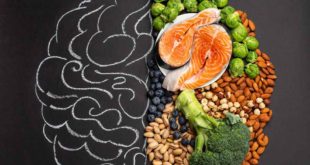
Proper nutrition during pregnancy is essential for the health and development of the baby as well as the well-being of the mother. Here’s a comprehensive guide on the key nutritional needs during pregnancy:
Macronutrients
- Protein
- Essential for the growth of fetal tissues, including the brain, and for increasing blood supply.
- Recommended Intake: About 71 grams per day.
- Sources: Lean meats, poultry, fish, eggs, dairy products, legumes, nuts, and seeds.
- Carbohydrates
- Provide energy for the mother and the growing baby.
- Focus on complex carbohydrates that are high in fiber.
- Sources: Whole grains, vegetables, fruits, and legumes.
- Fats
- Necessary for the development of the baby’s brain and nervous system.
- Emphasize healthy fats, including omega-3 fatty acids.
- Sources: Avocados, nuts, seeds, olive oil, fatty fish (salmon, sardines), and fortified foods.
Micronutrients
- Folate (Folic Acid)
- Crucial for preventing neural tube defects.
- Recommended Intake: 600-800 micrograms per day.
- Sources: Leafy greens, citrus fruits, beans, fortified cereals, and prenatal vitamins.
- Iron
- Supports the increased blood volume and prevents anemia.
- Recommended Intake: 27 milligrams per day.
- Sources: Lean meats, spinach, beans, lentils, fortified cereals, and prenatal vitamins.
- Calcium
- Important for the development of baby’s bones and teeth.
- Recommended Intake: 1,000 milligrams per day.
- Sources: Dairy products, fortified plant-based milks, leafy greens, and tofu.
- Vitamin D
- Works with calcium to support bone health.
- Recommended Intake: 600 IU (15 micrograms) per day.
- Sources: Fatty fish, fortified milk, fortified orange juice, and sunlight.
- Vitamin C
- Enhances iron absorption and supports the immune system.
- Recommended Intake: 85 milligrams per day.
- Sources: Citrus fruits, strawberries, bell peppers, and tomatoes.
- Vitamin A
- Supports the development of the baby’s organs and immune system.
- Recommended Intake: 770 micrograms RAE per day.
- Sources: Carrots, sweet potatoes, spinach, and fortified cereals.
- Iodine
- Essential for thyroid function and brain development.
- Recommended Intake: 220 micrograms per day.
- Sources: Iodized salt, dairy products, fish, and eggs.
- Zinc
- Important for cell growth and immune function.
- Recommended Intake: 11 milligrams per day.
- Sources: Meat, shellfish, legumes, and nuts.
Hydration
- Adequate fluid intake is vital to support increased blood volume and amniotic fluid.
- Aim for at least 8-10 cups of water per day.
- Other sources: Herbal teas, milk, and 100% fruit juices.
Dietary Supplements
- Prenatal Vitamins: Ensure intake of essential nutrients, especially folic acid, iron, and calcium.
- Omega-3 Supplements: Especially if dietary intake is low, to support fetal brain development.
Foods to Avoid
- High-Mercury Fish: Swordfish, shark, king mackerel, and tilefish.
- Undercooked or Raw Seafood and Eggs: Risk of foodborne illness.
- Unpasteurized Dairy and Juices: Risk of listeria.
- Processed Meats: Such as deli meats and hot dogs unless heated until steaming hot.
- Excess Caffeine: Limit to 200 mg per day.
- Alcohol: Completely avoid to prevent fetal alcohol spectrum disorders.
Tips for a Balanced Diet
- Eat Small, Frequent Meals: Helps with nausea and keeps energy levels stable.
- Include a Variety of Foods: Ensures a broad range of nutrients.
- Focus on Whole Foods: Minimize processed foods and added sugars.
- Listen to Your Body: Eat when hungry and stay hydrated.
Maintaining a well-rounded diet with these nutritional guidelines helps ensure a healthy pregnancy for both mother and baby. Always consult with a healthcare provider for personalized nutritional advice.
 Daryeel Magazine
Daryeel Magazine




